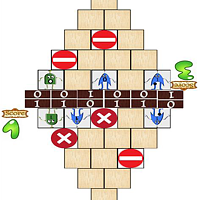On the Impact of the Dominant Intelligences of Players on Learning Outcome and Game Experience in Educational Games: The TrueBiters Case

This paper presents a digital educational game, TrueBiters, developed in order to help students practice the use of the truth tables to compute the truth-value of logical expressions in proposition logic. Next to improving the pass rate of our logic course, we also use the game to investigate whether there is a difference in learning outcome and game experience for students with different dominant types of intelligences. The results of a pilot study show that the use of TrueBiters resulted in an improvement of the learning outcome for logically-mathematically intelligent players. The results of a pilot study on game experience show differences for kinesthetically intelligent and logically-mathematically intelligent players with respect to certain game experience aspects. The number of participants was too small to draw definitive conclusions, but the results are an indication that the dominant types of intelligences do matter for the effectiveness of an educational game.
Publication Reference
Sajjadi, S., El Sayed, E. & De Troyer, O. (2016). On the Impact of the Dominant Intelligences of Players on Learning Outcome and Game Experience in Educational Games: The TrueBiters Case. In: Games and Learning Alliance : 5th International Conference, GALA 2016, Utrecht, The Netherlands, December 5–7, 2016, Proceedings. Bottino, R., Jeuring, J. & Veltkamp, R. C. (eds.). Springer International Publishing, p. 221-231 (Lecture Notes in Computer Science; vol. 10056)

